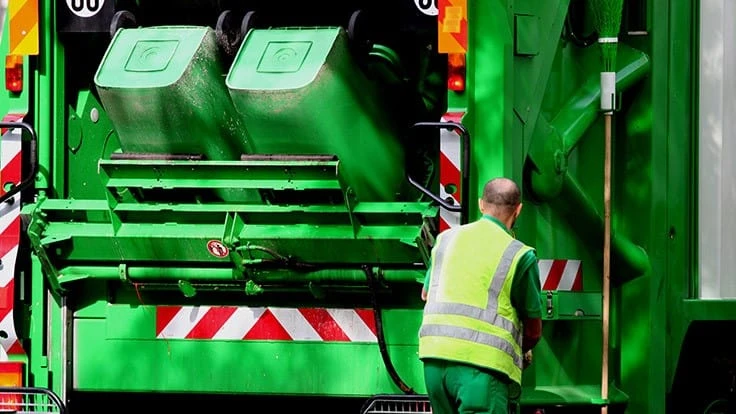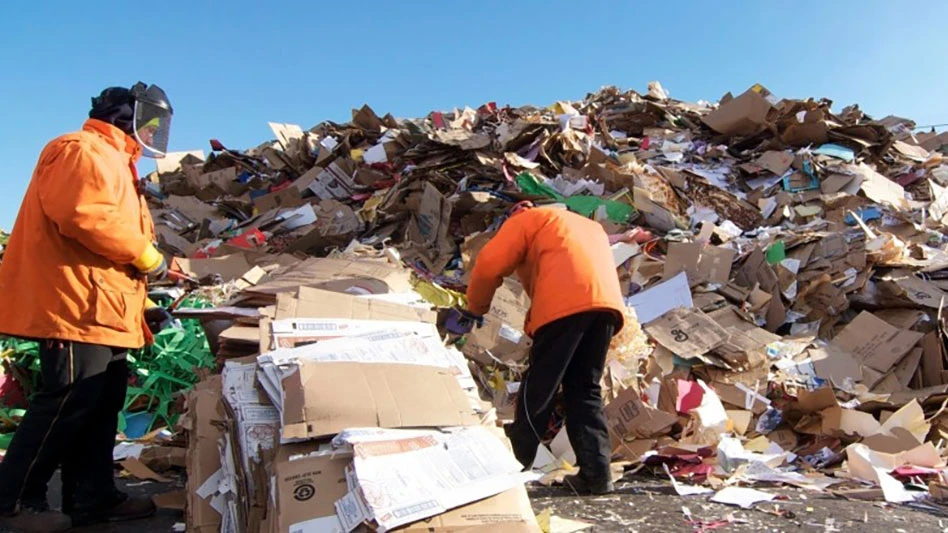
© Gautier Willaume - dreamstime.com
The RecycleCT Foundation has published a Connecticut Recycling Economic Information (REI) Study that documents the economic contributions of residential recycling in the states. RecycleCT is a nonprofit that promotes research and education activities that increase the rate of recycling and reuse in Connecticut.
The foundation hired Ann Arbor, Michigan-based Resource Recycling Systems to conduct a state-specific economic benefits study on the impact of residential blue bin recycling, bottle deposit container collection and residentially focused stewardship programs, including electronics, mattresses and paint recycling.
“Too many times we hear the myth that our recyclables are put in the trash,” says Frank M. Antonacci, vice chair of RecycleCT board and the chief operating officer of USA Waste and Recycling. “The study illustrates why the state of Connecticut is perennially recognized as a top 10 state for recycling through the vibrant, resilient and well-established recycling industry that contributes greatly to Connecticut’s economy while ensuring recyclables are indeed recycled.”
According to a news release from the Northeast Recycling Council (NERC) on the new RecycleCT report, the study includes information on collection and hauling of recyclables by municipalities and the private sector, bottle redemption centers, municipal and private sector transfer stations, any facility that sorts, consolidates, or densifies recyclables, electronics and mattress dismantling, recyclers—such as plastic reclaimers—that convert material into final product or raw material for manufacturing and supporting activities such as research, consulting, engineering and brokering.
Additionally, the REI study found that Connecticut’s residential recycling programs support 4,900 full-time jobs, generate $383 million in annual labor income, provide a $642 million contribution to the state’s gross domestic product and $1.16 million in total output production value.
In Connecticut, the study reports that the total economic output of $1,159 million, or roughly $1.16 billion, from residential recycling reflects the contributing components of the industry. Collecting materials represents approximately 22 percent of that total, with processing at a material recovery facility (MRF) and bottle bill redemption collection almost equal at 13 percent and 14 percent, respectively. The study indicates that end markets represent a significant contribution of 29 percent, even though Connecticut has few companies that use recycled material in their products.
In addition, the residential recycling sector in Connecticut contributes 0.25 percent of the state’s total economic output. According to NERC, this demonstrates the economic importance of supporting manufacturers that use feedstock from our recycling system.
“I think this is a great first step towards understanding the impact these activities have on our economy,” says Diane Lauricella, a member of the RecycleCT board and solid waste consultant in Norwalk, Connecticut. “It tells us that we will learn more when we measure the businesses engaged in reuse or composting or other recycling activities beyond bottles and cans.”
According to RecycleCT, the complete study and an infographic can be found online.
Latest from Waste Today
- Oregon approves EPR Program Plan
- J.F. Lehman & Co. acquires Atomic Transport LLC
- Mazza Recycling adds to transfer station operations
- Michigan awards $5.6M in recycling, waste reduction grants
- Republic acquires Shamrock Environmental
- Russelectric spotlights paralleling systems for water, wastewater treatment facilities
- Optimized Waste and Logistics North America joins Together for Safer Roads
- LoCI Controls system demonstrates early methane capture success




